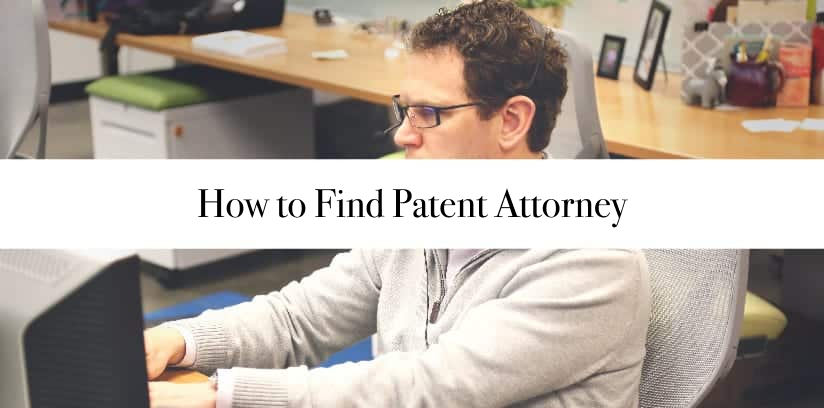Originally posted on April 10, 2016 @ 8:38 pm
Securing a patent for your amazing invention is like climbing a massive mountain, yet it can really boost your business sky-high. Finding the right attorney is vital—one who truly understands you and the intricate details. Picture this as your hidden treasure map to uncovering that ideal legal partner tailored just for you. Dive into this adventure, and you’ll soon know exactly how to select your patent ally. This guide is a gold mine for individuals who want to protect their ideas and propel their business dreams into the stratosphere. Begin a journey packed with expert tips and little-known secrets. Learn how to choose your patent expert with assurance.
Step 1: Assess Your IP Needs
Before you begin you should put some time and thought into determining exactly what your needs are and the technical nature of your invention. Experience in your area will be key to making sure IP matters can be handled smoothly. Does your business specialize in inventing, marketing, and selling new products and innovations? If yes, then you probably want to look for someone who specializes in patents and trademarks in that area. However, if your business is also involved in online ventures or publishing, it might behoove you to seek out an attorney who deals with First Amendment and information technology law. If you’re trying to patent IP core to your startup it would also be a good idea to look for a lawyer with experience in that area.
Another decision you’ll need to make is to determine what kind of professional best suits your needs: a patent agent, or a patent attorney. Both patent agents and patent attorneys are licensed to practice by the U.S. Patent and Trademark Office. However, while a patent attorney is a full attorney specializing in patent law and is thus able to represent you in a court of law, a patent agent has only passed the section of the bar exam pertaining to intellectual property and lacks the full legal capabilities of an attorney. With the downside that a patent agent cannot represent you in court. As both patent agents and patent attorneys are required to hold a technical degree in a field such as electrical or mechanical engineering, computer science, chemistry, etc., you’ll want to choose an agent or attorney whose technical specialty encompasses the kind of invention you’re seeking to patent. But generally speaking given the technical and legal complexity inherent in most patent matters most people opt for patent attorneys.
Finally, a useful preliminary step might be to spend some time doing your own homework about hiring attorneys in general and patent procurement (by reading articles like this one). While you won’t be filing the patent yourself, doing the research to familiarize yourself with the legal process and steps involved in filing a patent can make it easier for you to work with your attorney, and potentially cut costs & help you save money down the road.
Step 2: Look For Patent Attorneys In the Right Places
Now that you’ve gone through the process of assessing your needs, it’s time to search for the attorney that will best meet them! It is recommended that you avoid the common, if misguided step of asking around for recommendations in your social and professional circles. While people you know might be happy to recommend a lawyer they know personally, you must be sure they’ve actually had a working relationship with them and that they specialize around your needs. If your colleagues do know a lawyer who has successfully practiced in a certain area this could at least be a good way to start evaluating a candidate.
I’d recommend searching through the web and evaluating the profiles and ratings of local attorneys in your area. The goal here is to gather as much information as possible on the reputation of your attorney and spot red flags early. At this phase the firm or attorney’s site, social profiles, Google Business Pages, and sites like Avvo are all your friend. Nothing will replace meeting your attorney in person and making sure you can both have a strong working relationship but you’ll save yourself some time if you can at least be confident that both of you can work well together.
Another option is to check out local inventors’ groups and clubs. These groups can be helpful in providing recommendations for patent attorneys and agents in your area. The United Inventors Association is a non-profit organization helps inventors and inventors’ organizations, and their website can help direct you to nearby inventors’ groups: www.uiausa.org.
The goal is to find out everything you can about their reputation and how they represent clients, including reviews of their services and quotes to the press. It is also useful to try to get a sense of their workload, as lawyers who are already involved in large and ongoing cases will have less time and attention to devote to your case.
As a final check make sure you’re dealing with the real deal. The United States Patent & Trademark Office search can help you find licensed patent attorneys and patent agents organized by state. And of course make sure they haven’t been disbarred.
Set Up Preliminary Interviews
Now that you’ve finally established a list of a few qualified candidates for the job after doing your research, it’s time to get in contact with their offices. When you get in touch, first make sure that they’re currently accepting new clients, and if so, schedule a preliminary interview. Make sure to dress professionally for your interview, and arrive prepared with all the relevant details that will help your potential lawyer decide whether or not the two of you are likely to have a fruitful working relationship. Be ready to ask questions about how in particular they usually conduct patent searches, the patents they’ve successfully registered in the past, their anticipated time frame for working with you, and the fees you can expect to pay. Make sure to ask for references of past clients, and to check them.
It’s worth looking into whether a particular attorney you’re considering, any of their other clients, or even their family has potential conflicts of interests that might impede their giving you the service you’re paying them for. Finally, be sure to look over and thoroughly understand a copy of a firm’s retainer agreement before making any commitments.
If you need any more tips finding the right patent attorney feel free to message me directly.






